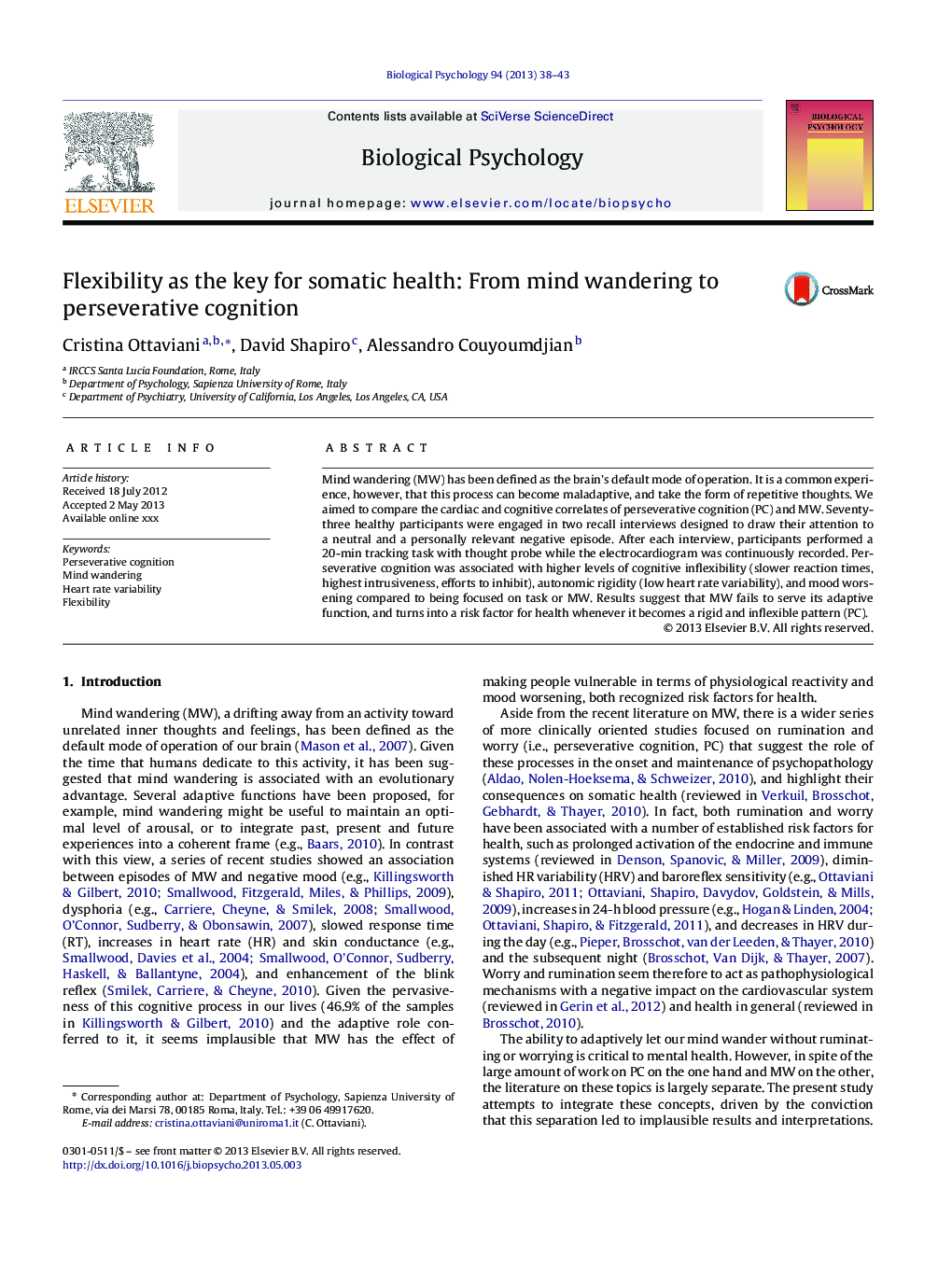| Article ID | Journal | Published Year | Pages | File Type |
|---|---|---|---|---|
| 10454200 | Biological Psychology | 2013 | 6 Pages |
Abstract
Mind wandering (MW) has been defined as the brain's default mode of operation. It is a common experience, however, that this process can become maladaptive, and take the form of repetitive thoughts. We aimed to compare the cardiac and cognitive correlates of perseverative cognition (PC) and MW. Seventy-three healthy participants were engaged in two recall interviews designed to draw their attention to a neutral and a personally relevant negative episode. After each interview, participants performed a 20-min tracking task with thought probe while the electrocardiogram was continuously recorded. Perseverative cognition was associated with higher levels of cognitive inflexibility (slower reaction times, highest intrusiveness, efforts to inhibit), autonomic rigidity (low heart rate variability), and mood worsening compared to being focused on task or MW. Results suggest that MW fails to serve its adaptive function, and turns into a risk factor for health whenever it becomes a rigid and inflexible pattern (PC).
Related Topics
Life Sciences
Neuroscience
Behavioral Neuroscience
Authors
Cristina Ottaviani, David Shapiro, Alessandro Couyoumdjian,
